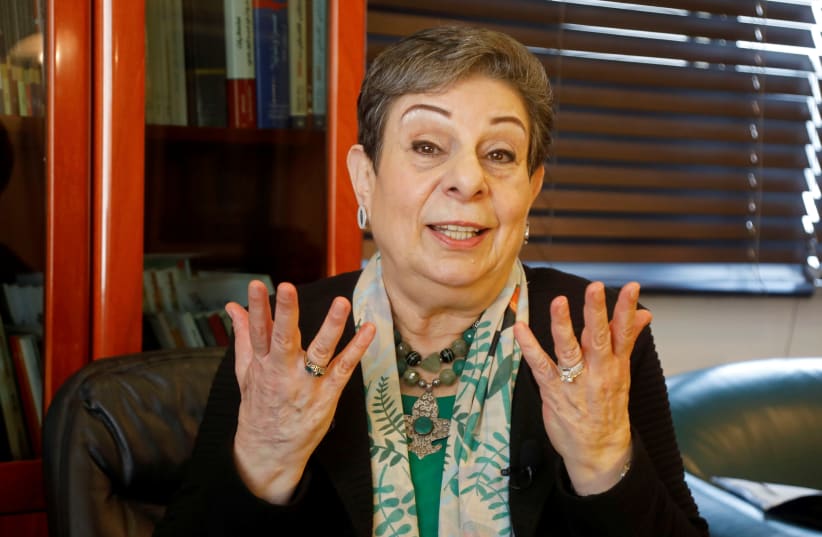Hanan Ashrawi, the most famous woman in Palestinian politics, will not be running in the first elections for 15 years, opting instead to mentor a new generation of political leaders.
Over three decades in public office, the veteran negotiator and women's rights advocate was one of the highest-profile Palestinian officials, especially to international audiences.
In December she resigned from her senior post in the Palestine Liberation Organization (PLO), citing a need for reform and criticizing what she called a lack of opportunities for women and young people.
Now that Palestinian President Mahmoud Abbas has announced parliamentary and presidential elections for later this year, 74-year-old Ashrawi says she will not change her mind.
"I want to set an example that people can leave office," she told Reuters.
"I have been supporting and mentoring many young men and women in different capacities... it's important that I do that in a variety of ways, and I am," she said between back-to-back meetings with diplomats at MIFTAH, her civil society organization to promote global dialog and democracy.
Ashrawi, who was elected to the Palestinian parliament in 2006, declined to say who she was mentoring.
Born in Ramallah in the West Bank, Ashrawi was an English professor when she became a familiar face on television during the first Palestinian uprising of the late 1980s, advocating her people's quest for statehood.
She was catapulted onto the international arena when Yasser Arafat chose her as the spokeswoman for the Palestinian delegation to the first public face-to-face talks between Palestinians, Israelis and Arab nations brokered by the United States and Russia at the Madrid Conference in 1991.
Ashrawi said she did not find "locking horns" with Israelis especially difficult, but that it took a while to "gain the respect, albeit the grudging respect, of the men with whom you work."
She recalled her early days of activism, saying she was beaten by Israeli soldiers at protests where she feared for her life, years before coming face-to-face with Israeli officials at the negotiating table.
Ashrawi has been veiled in her criticism of the Palestinian leadership but indicated that even as a member of the PLO's Executive Committee, she felt marginalized.
When she quit, Palestinian political analyst Nour Odeh was among those who praised Ashrawi for her contribution, calling her an "inspirational, powerful and grand woman." Others have been more critical, suggesting Ashrawi could have done more at an earlier stage to help women rise through the political hierarchy.
Ashrawi said her generation faced "real difficulty" opening up a male-dominated world. "The battle is not to gain the individual respect, but to open up the vista for other women. That's where the real test is," she said.
"The worst thing for me is to be in a position where you feel you're not making a difference, where you are not in a position where you can really affect change," said Ashrawi.
"Whatever you do, you have to make a difference."
